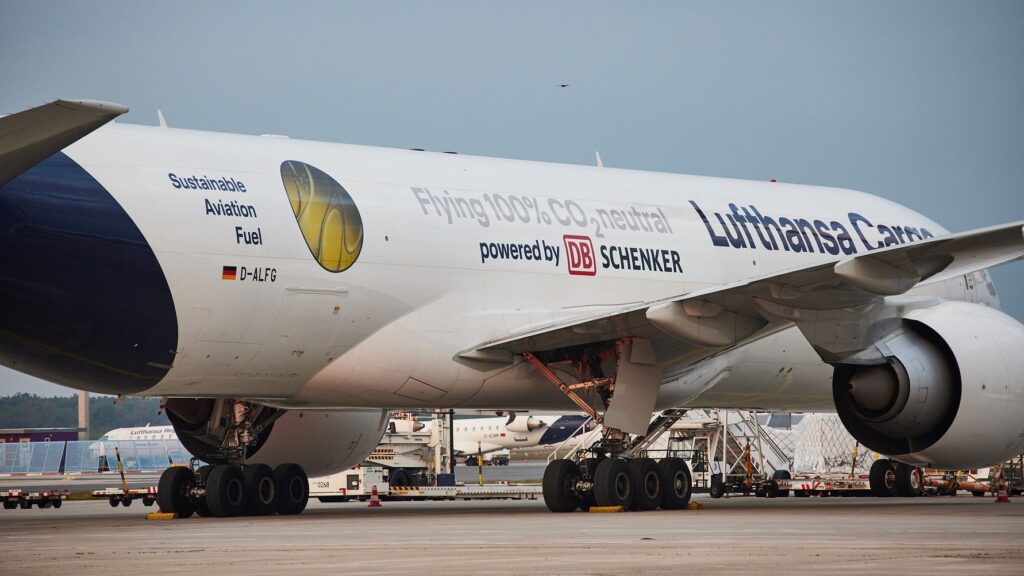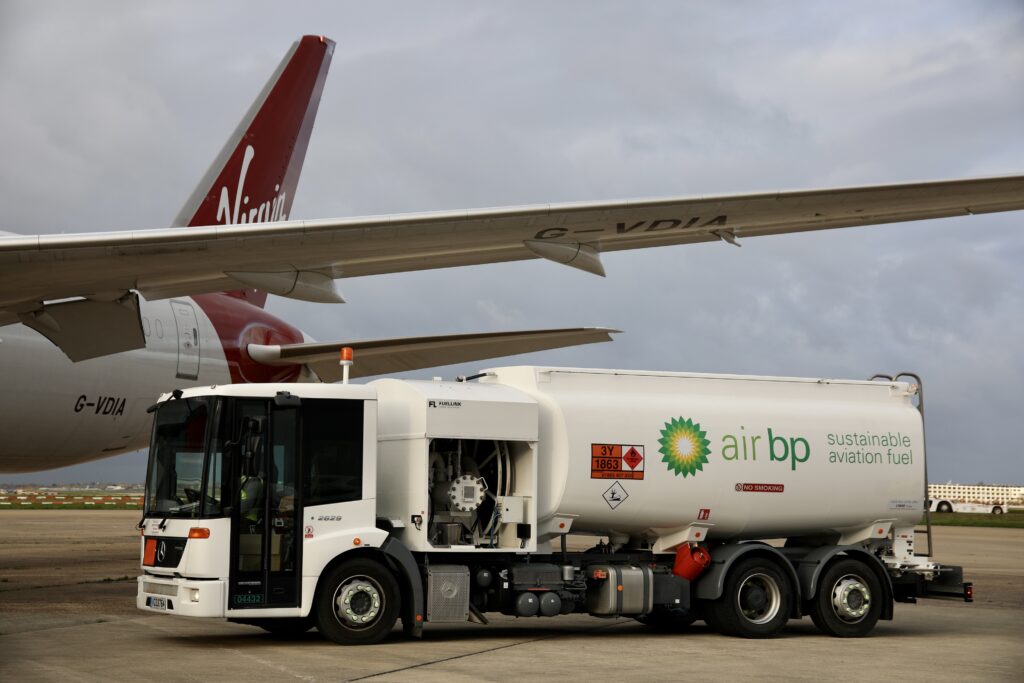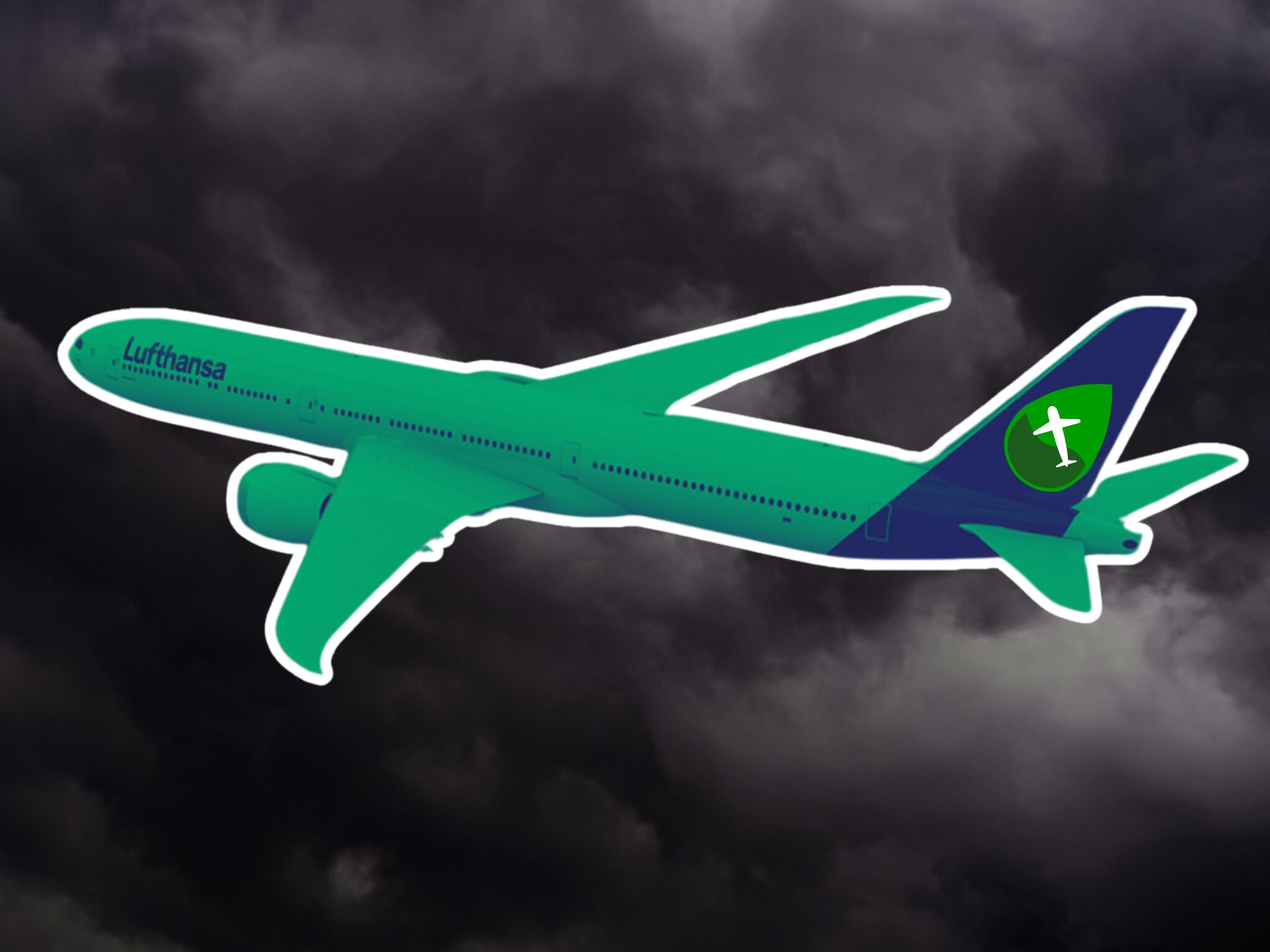Lufthansa to Raise Fares By Up to €72 for Sustainable Fuel, Blames EU Rules for Surcharge
7 Mins Read
German flag carrier Lufthansa is passing on the added costs from EU-mandated sustainable aviation fuel use to passengers, with a green surcharge of up to €72 per ticket across Europe.
Lufthansa passengers departing from Europe from January 1 next year will now need to pay as much as €72 more for their tickets, as the airline attempts to manage costs of expensive ‘sustainable aviation fuel’ (SAF), which is currently at least twice (and up to five times) as expensive as petroleum-based fuel.
The Environmental Cost Surcharge is being rolled out ahead of incoming EU rules that mandate carriers to use at least 2% of SAF. Lufthansa – which also operates Eurowings, Swiss and Austrian Airlines – has become one of the first airline groups to pass on the financial cost of these emissions regulations to consumers, suggesting that it “will not be able to bear the successively increasing additional costs resulting from regulatory requirements in the coming years on its own”.
The green surcharge is therefore designed to partly offset these. Applicable on all tickets issued from June 26, it applied to nearly all flights operated by Lufthansa that depart from Europe, regardless of the destination. This includes the 27 EU countries, as well as the UK, Norway and Switzerland. Depending on the fight route, a levy between €1 and €72 will be applied to ticket costs.
Fares will increase by up to €5 for economy and €7 for business class on short and medium-haul flights. But on long-distance routes, business class passengers would need to shell out €18-36, and first-class prices will rise by up to €72.
The only flight tickets unaffected by the SAF surcharge are Eurowings ones sold directly by the company, a Lufthansa spokesperson told Reuters. He added that the surcharges weren’t expected to go up even further, for now.
The EU rules that made Lufthansa pass on climate costs

The aviation industry is responsible for 2% of the world’s emissions, but it’s an incredibly tough sector to decarbonise, given that oil-based fuels can’t easily be replaced by other alternatives.
SAFs are becoming a major tool for airlines to reduce emissions. These can be made from a range of ingredients – including corn, animal fat, algae, sewage and municipal waste – and US government guidelines state that they must emit at least 50% less carbon than petroleum-based fuels. So far, regulators have allowed carriers to use a maximum of 50% of SAF in their engines.
As part of its Fit for 55 – which aims to cut greenhouse gas emissions by at least 55% by the end of the decade – the EU Parliament introduced rules that require fuel suppliers to ensure that 2% of all fuel at EU airports must be SAF by 2025. This quota will rise over the years, to 6% in 2030, 20% in 2035, and 70% in 2025.
The Lufthansa Group – which aims to slash emissions in half by 2030, en route to becoming carbon-neutral by 2050 – suggested that this will lead to added costs “in the billions”. The company outlines that it already “invests billions in new technologies every year” and works with partners on sustainable innovations and scaling key technologies. “In addition, the Lufthansa Group has actively supported global climate and weather research for many years,” it said.
It further pointed to the EU’s emissions trading scheme and the international Corsia initiative – under which airlines buy carbon credits to offset growth – as factors behind the introduction of the Environmental Cost Surcharge.
“It’s hard to believe they haven’t done this with an eye to sending a message to the [European] Commission,” Aviation Advocacy’s Andrew Charlton told the Financial Times, calling the move an “extremely aggressive” response to the EU regulation.
Sustainable aviation fuel has major bottlenecks

While the aviation sector has hailed SAF as their sustainable saviour, things aren’t that straightforward. There are two major issues with these biofuels: land use and supply.
SAFs rely on feedstocks, which aren’t necessarily climate-friendly. Moreover, there just isn’t enough feedstock to meet the industry’s fuel needs. Concerns have been raised over the land used for crops, the scalability of materials like animal fats or waste oils, and the amount of renewable energy required to produce cleaner fuels.
Take the US, for example, the second-largest producer of cereal – only a fraction of this goes to human consumption, with 44% going to animal feed and another 44% to biofuels. The latter now make up nearly all of the US’s growth for corn demand – which would have been lower today than in 2000 if it weren’t for these fuels.
A number of studies “estimate that biofuels have increased emissions, not decreased them”, according to data scientist Hannah Ritchie. “While these emissions are difficult to measure, the fact that there is even a credible debate as to whether they have made things worse or better suggests they’re not a great climate solution,” she wrote.
In 2023, a report by the Royal Society Net Zero Aviation Policy revealed that half of all British agricultural land – or over double its renewable electricity supply – would be needed to make sufficient amounts of SAF to meet these targets.
Let’s look at the supply issue then. The International Air Transport Association (IATA) reports that global production of SAF doubled in 2023 to surpass 600 million litres. This is expected to triple in 2024 to over 1.8 billion litres. But that will still only account for 0.53% of global aviation fuel requirements – Lufthansa alone consumed 8.45 billion litres of fuel last year.
“Even with that impressive growth, SAF as a portion of all renewable fuel production will only grow from 3% this year to 6% in 2024. This allocation limits SAF supply and keeps prices high,” said IATA general director Willie Walsh. “Aviation needs between 25% and 30% of renewable fuel production capacity for SAF. At those levels, aviation will be on the trajectory needed to reach net zero carbon emissions by 2050.”
Other airlines could follow suit with SAF surcharge

The uncertainty around SAF has attracted criticism from experts and climate activists. “We can’t produce a majority of our fuel requirements this way because we just don’t have the feedstocks. And even if you do, these fuels are not true ‘net zeros’,” Dr Guy Gratton, associate aviation and environment professor at Cranfield University, told the BBC in December, after Virgin Atlantic flew the first transatlantic flight using 100% SAF.
Cait Hewitt, policy director of the Aviation Environment Federation, said: “The idea that this flight somehow gets us closer to ‘guilt-free flying’ is a joke,” in response to a turn of phrase by the Department for Transport. She went on to accuse the industry of misleading consumers about SAF’s impact. Carriers like KLM (the Netherlands), Delta Air Lines (US) and Lufthansa subsidiary Austrian Airlines have previously been sued over greenwashing.
“I think it is logical to assume that other airlines will follow Lufthansa’s lead as it looks to pass on the increasing cost of environmental regulations in the EU,” said Dudley Shanley, analyst at Irish stockbroker Goodbody, told Reuters.
Air France-KLM was the first major airline group to introduce an SAF levy back in January 2022, adding up to €12 to business class fares and €4 to economy tickets. Reuters reports that it is now considering similar measures to Lufthansa, i.e., a higher surcharge.
“We have a SAF contribution in place, applicable to all flights (not only on departure from Europe) to transparently reflect the additional cost of incorporating sustainable aviation fuel,” an Air France-KLM spokesperson told the publication.
Budget carriers easyJet (which has been accused of investing in ‘junk’ carbon offsets) and Wizz Air both said they had no plans to introduce such an increase. But the latter warned: “In order to avoid burdening passengers with higher costs, we urge governments to provide incentives to enable the aviation industry to achieve its environmental goals more effectively.”
Some governments are already taking action. Singapore announced this year that it would introduce a green levy on all flights from 2026 to facilitate a transition to SAFs, with the amount dependent on the length of the journey. The government is aiming for departing flights to use 1% SAFs from 2026, rising to 3-5% by 2030.



